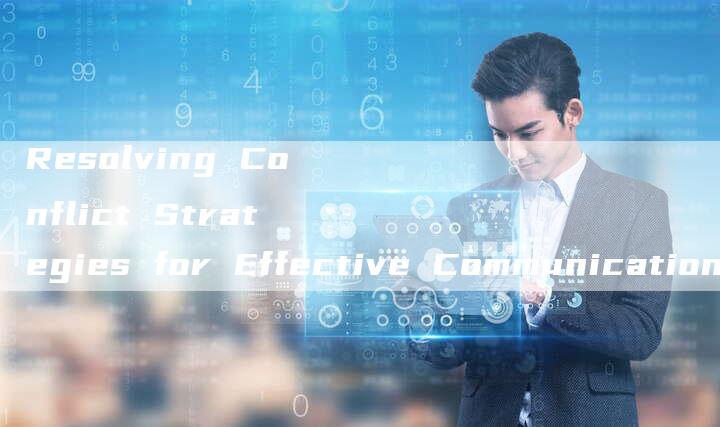
What is conflict?
Conflict refers to a disagreement or clash between two or more individuals or groups. It can arise due to differences in opinions, values, or interests. Conflict is a natural part of life and can occur in various settings, such as within families, in the workplace, or in communities.
Why is effective communication important in resolving conflict?
Effective communication is crucial in resolving conflicts because it helps individuals express their thoughts, feelings, and concerns in a clear and respectful manner. Misunderstandings and miscommunication can often escalate conflicts, whereas effective communication can help clarify misunderstandings, find common ground, and reach mutually satisfactory resolutions.
What are some strategies for effective communication in resolving conflict?
1. Active Listening: One of the key strategies is to actively listen to the other party involved in the conflict. This involves paying full attention, showing empathy, and avoiding interruptions. Active listening helps in understanding the other person's perspective and promotes open dialogue.
2. Use \"I\" Statements: When expressing your own thoughts and feelings, using \"I\" statements can be helpful in avoiding blame or criticism. For example, instead of saying \"You always do this,\" you can say \"I feel frustrated when this happens.\" This approach focuses on expressing your own emotions and encourages the other person to listen more openly.
3. Stay Calm and Respectful: It is crucial to remain calm and respectful during conflict resolution discussions. Reacting impulsively or aggressively can escalate the conflict further. Taking deep breaths, using a calm tone of voice, and maintaining respectful body language can create an environment conducive to effective communication.
4. Seek to Understand: Before trying to make your point, it is important to understand the other person's perspective. Asking open-ended questions, paraphrasing their statements, and summarizing their views can help ensure that you fully grasp their position, fostering a more productive conversation.
5. Focus on Solutions: Instead of dwelling on the problem, shift the focus towards finding mutually beneficial solutions. Brainstorm together, consider different alternatives, and be open to compromise. This approach allows both parties to feel heard and involved in the resolution process.
What are the potential outcomes of effective communication in conflict resolution?
Effective communication in conflict resolution can lead to various positive outcomes. It can help build stronger relationships, increase understanding and empathy between individuals or groups, and promote a sense of collaboration and teamwork. Moreover, by addressing and resolving conflicts through effective communication, it is possible to prevent further disagreements or resentments from arising in the future.
Conclusion
Resolving conflicts through effective communication is a skill that can be learned and developed. By actively listening, using \"I\" statements, staying calm and respectful, seeking to understand, and focusing on solutions, individuals or groups can navigate conflicts with greater ease and achieve mutually satisfactory resolutions. Ultimately, effective communication can pave the way for healthier and more harmonious relationships.






















